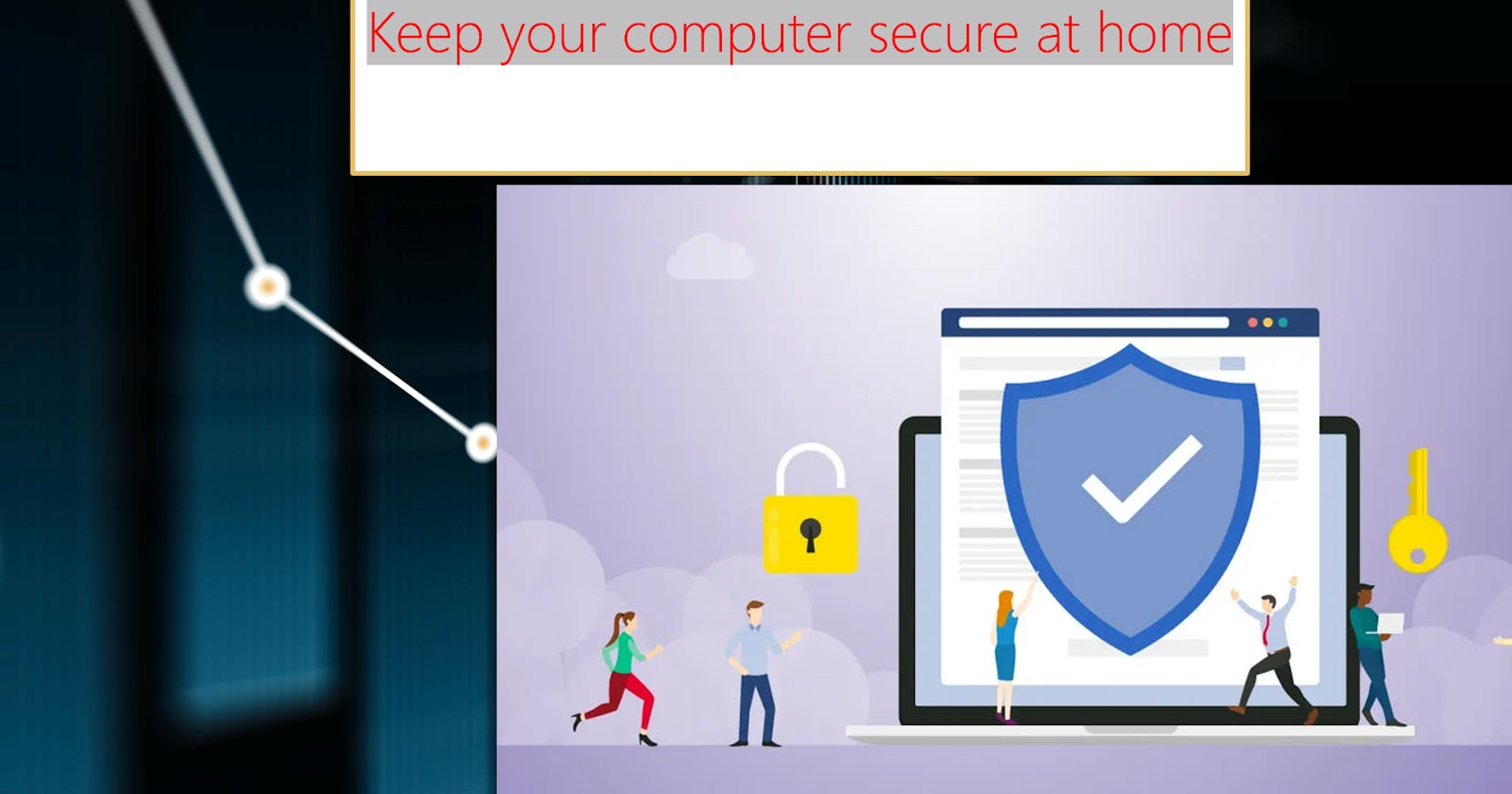Keeping your computer secure helps you avoid malware and direct hacking attempts designed to steal your personal information. Here are some ways you can help reduce your online risk when you use your computer at home.
Tips to protect your computer
Use a firewall
Windows has a firewall already built in and automatically turned on.Keep all software up to date
Make sure to turn on automatic updates in Windows Update to keep Windows, Microsoft Office, and other Microsoft applications up to date. Turn on automatic updates for non-Microsoft software as well, especially browsers, Adobe Acrobat Reader, and other apps you regularly use.Use antivirus software and keep it current
If you run Windows you have Windows Security or Windows Defender Security Center already installed on your device.
Make sure your passwords are well-chosen and protected
To learn how, see Protect your passwords.Don’t open suspicious attachments or click unusual links in messages.
They can appear in email, tweets, posts, online ads, messages, or attachments, and sometimes disguise themselves as known and trusted sources.Browse the web safely
Avoid visiting sites that offer potentially illicit content. Many of these sites install malware on the fly or offer downloads that contain malware. Use a modern browser like Microsoft Edge, which can help block malicious websites and prevent malicious code from running on your computer.Stay away from pirated material
Avoid streaming or downloading movies, music, books, or applications that do not come from trusted sources. They may contain malware.Don't use USBs or other external devices unless you own them
To avoid infection by malware and viruses, ensure that all external devices either belong to you or come from a reliable source.
